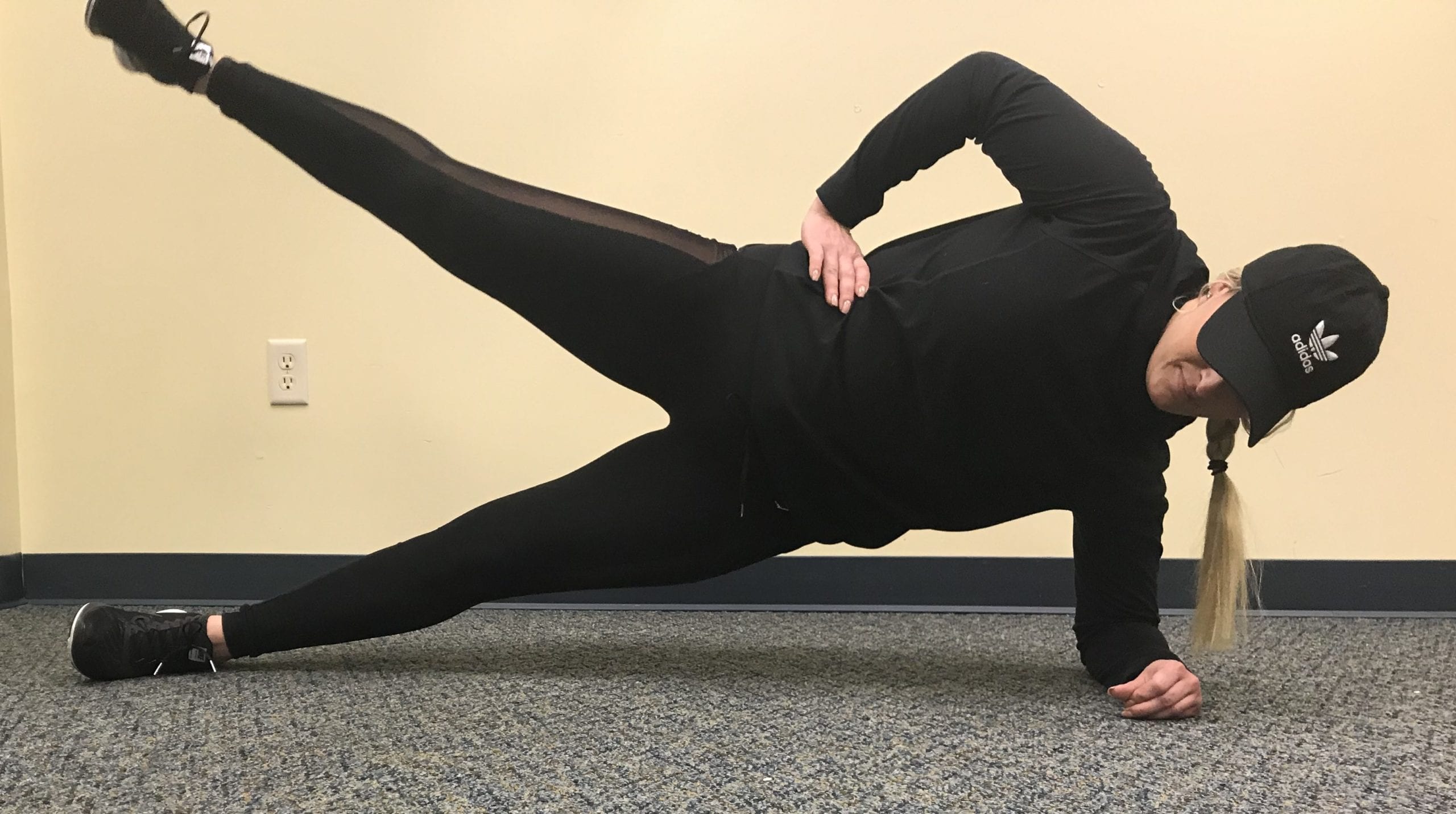At the beginning of this year, equestrians around the world were planning out their show seasons. They were setting goals, picking which shows to attend, and spending countless hours in the barn working to improve with every ride. It was just the same as the beginning of each show season prior.
Enter COVID-19. The pandemic effectively turned the spring show season on its head. Numerous shows have been canceled in the best interest of their would-be participants. On top of this, millions of people are staying home in an effort to flatten the curve.
While precautions such as these are essential to help stop the spread of COVID-19, they can also leave many of us with unexpected free time, and little to do with it. Not to mention, various barns have suspended lessons to avoid spreading any illness among clients.
In the spirit of making the best of a tough situation, GoHorseShow spoke with Brad Kearns, Missy Thyfault, and Brent Tincher about various ways to continue improving your equine skills, even when you are are away from the barn.
Strength and conditioning
No doubt, riding horses is a physically demanding activity. Just like any other athlete, when we step away from a consistent practice schedule, we will inevitably lose some strength as our bodies adjust to a new physical routine. Thyfault, Tincher, and Kearns all advised on how we can best maintain our physical condition without our designated riding time.
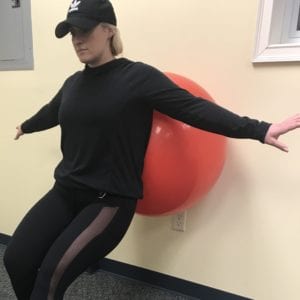 Missy Thyfault of Thyfault Performance Horses in Shelby, Ohio, says that continuing to exercise physically during this period is crucial. “I have one client who is on self-quarantine at home, and they have a set of exercises with a ball that they do to help strengthen their core. I also encourage my customers to walk around on their heels to strengthen their calves,” she told us.
Missy Thyfault of Thyfault Performance Horses in Shelby, Ohio, says that continuing to exercise physically during this period is crucial. “I have one client who is on self-quarantine at home, and they have a set of exercises with a ball that they do to help strengthen their core. I also encourage my customers to walk around on their heels to strengthen their calves,” she told us.
Multiple World and Congress Champion trainer Brent Tincher agreed that maintaining your core strength is of the utmost importance while you remain at home. “Riding is all about balance,” he said, “so you should work on your core.” He explained that leg and upper-body exercises are beneficial as well, “so that when you do get a chance to ride again, you’re up for it.”
Focusing on your physical strength does not necessarily require you to lift heavy weights or push yourself past where you are comfortable, though. AQHA Professional Horseman Brad Kearns said, “If you don’t have a workout routine, don’t try to train for a triathlon, but just take the time you would have been riding and do something active. Find an online yoga class, online isometrics, chase your kids or dogs around the yard, just be active…your horse will thank you.”
He also added that “If you are unsure where to start, equestrian athlete and physical therapist, Ali Hartman of North Carolina has coached many equine athletes to become better, fitter versions of themselves. Check out some of the focused equestrian activities on her Facebook page or the Facebook page of Pro-Activity EQFit.”
Use your published resources
While we can’t be actively taking lessons with our trainers during this period, there are a plethora of resources to be found on the internet that can be extremely beneficial to learn more about each discipline.
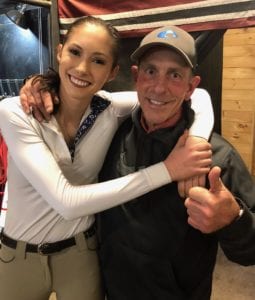 Tincher told us that he has found reading to be one of the most helpful habits in improving as a horseman. “I probably learn more and stay more up-to-date by reading than anything else. If you’re interested in the western riding, read up on that, or even read a dressage book – that has probably helped me with the western riding more than anything. Reading is going to give you information that will help you be better at it when you do get the chance ride again,” he explained.
Tincher told us that he has found reading to be one of the most helpful habits in improving as a horseman. “I probably learn more and stay more up-to-date by reading than anything else. If you’re interested in the western riding, read up on that, or even read a dressage book – that has probably helped me with the western riding more than anything. Reading is going to give you information that will help you be better at it when you do get the chance ride again,” he explained.
Along with published articles and books, Kearns recommended taking the time to familiarize yourself with the rules of the discipline that you show in. By taking the time to study the rulebook for their association, a competitor will “better understand how their performance is being evaluated.”
Knowing the specific criteria on which you are judged while you are in the show pen will help you to better prepare outside of the pen, even when you are away from the barn. Kearns continued on the importance of utilizing these resources, saying that, “Knowing the rules and customizing a performance for each competition based on the rules as well as the ability of the competitor and their equine partner, is how successful performances are born.”
Watch and learn
Many of us are finding ourselves on our phones and laptops more and more with the additional, though not necessarily welcome, free time that quarantine has gifted us. Rather than mindlessly scrolling, we can make good use of these platforms to help improve our skills as riders.
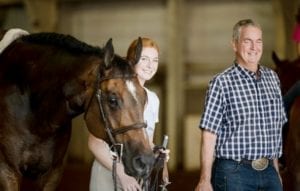 Brad Kearns says that “putting on your judging hat” is one way to utilize the time you spend online to better understand the showing process. Using the score sheets that are provided on the website of an exhibitor’s respective organization, Kearns says that they should “watch videos and try to score the performance.”
Brad Kearns says that “putting on your judging hat” is one way to utilize the time you spend online to better understand the showing process. Using the score sheets that are provided on the website of an exhibitor’s respective organization, Kearns says that they should “watch videos and try to score the performance.”
One particularly convenient resource for this activity is Charlie Cole’s “The Virtual Horse Show” Facebook page. Kearns says that riders can “compare their score thought process to that of a renowned judge, and thus learn how the judging process works. Exhibitors can translate what they learn into self-awareness and self-critiques, and then you have a well-educated, well-informed exhibitor.”
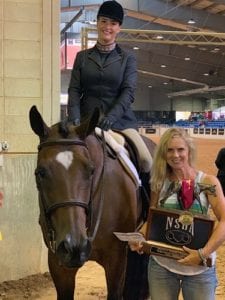 Thyfault agreed that watching videos can be extremely beneficial. She noted that she has had clients “videotape themselves practicing their showmanship run.” In this exercise, individuals “lay out a pattern without a horse, to watch their form and presentation,” she explained.
Thyfault agreed that watching videos can be extremely beneficial. She noted that she has had clients “videotape themselves practicing their showmanship run.” In this exercise, individuals “lay out a pattern without a horse, to watch their form and presentation,” she explained.
Along with watching themselves, riders can spend time watching videos online to “study their favorite competitors,” which is helpful to “refresh their skills, to review, and to go over what is winning and what is out there that is successful,” she added.
Though spending so much time away from the barn is the opposite of how we expected to spend our spring, we can all take these tips to help find some positive light in this difficult situation.
Looking out for your loved ones, friends, and even strangers by staying home is not a death sentence for your riding practice. Get creative, and keep working! Do you have any Coronavirus quarantine exercises that you are using at home? If so, let us know.


